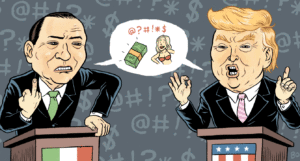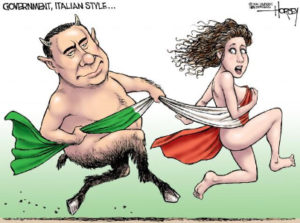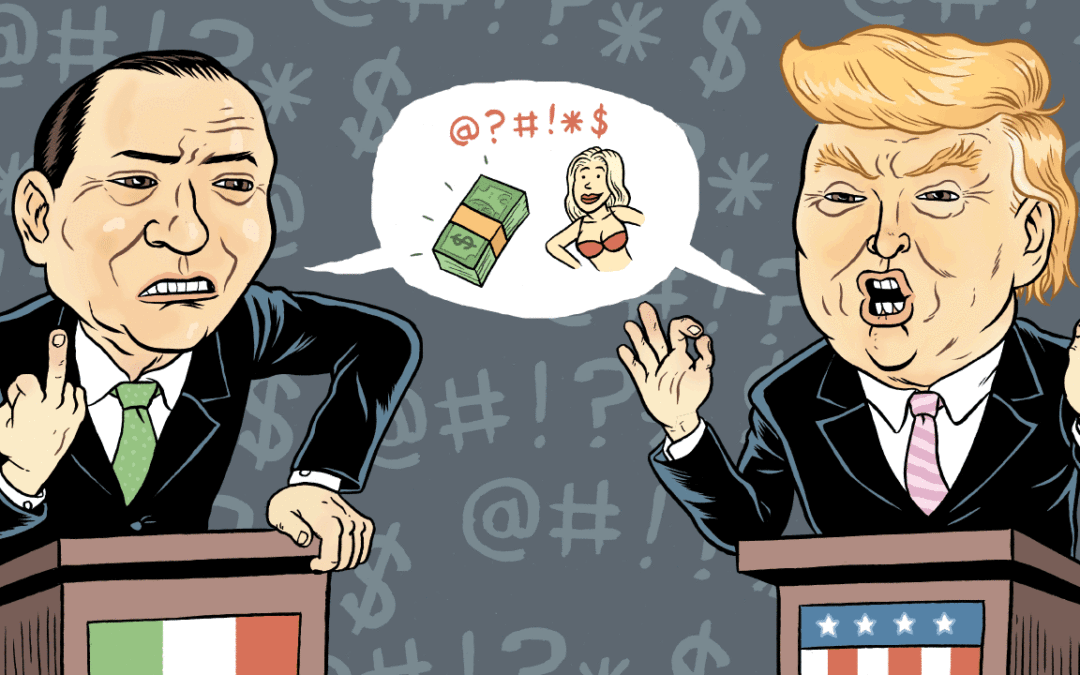Got relatives or friends on the other side of your political beliefs? Can’t get three words in before the conversation gets rough? Do you avoid talking all together to avoid feeling awful? For my series on inclusive conversations−conversations where differences are seen not as a resource, not a threat−and this tip is for you: don’t word-pick, empathize.
Here’s how this tip became real to me.
Italy. Summer of 2008. It was the first summer Obama was in office. I was in a pub in Rome having a drink with two good friends and some of their friends I barely knew. It was Obama’s first year, and Europe was thrilled and relieved that we just abandoned the Dark Age, religious crusade era of George W. Bush. Hope was in the air, for a man who could compose a grammatically correct sentence, inspire the audience, was savvy in international politics, and had used hope, rather than fear, to galvanize his voters.
One of my friends introduced me to the others as an expert in African American culture, given my PhD in African American Studies.
Someone asked, “So what do you think about Obama being elected? Has the United States stopped being racist?”
“Well,” a second person replied, “you can’t ask that question, because Obama isn’t really Black.”
In the context of the United States, that was of course an offensive statement.
People had accused him of not being Black enough during the primaries, but this was Italy, a different context all together. They knew little or nothing of that aspect of the American controversy.
Italy has not had a movement for political correctness and people are extremely blunt.
I was tempted to word-pick. I have been trained to. I was taught to word-pick debating in college: “How are you defining ___?” And the conversation shifts to definitions, away from the original topic. It’s a good stalling tactic, but it’s not a good bridge builder, like most debate tactics. Debating is about winning, not about building understanding. And the word-pick debate is often useless, words are used differently in different cultures, contexts, by different people, even.
I tried to not beat him down with knowledge (see Tip #4 Meet people where they are). Instead:
1) “Don’t get furious, get curious” it’s a tip from the Virtues ProjectTM. When someone says something that comes across as offensive, try asking questions.
“Why would you say that?” I said.
“Because his mother was white.”
“Actually in the United States, for centuries, a one-drop rule defined Black any person with any African ancestry. So most people with any African ancestry in America consider themselves Black, because they are treated as such. Plus, Blackness in America is cultural, not just genetic.
“Oh. I thought that because he’s light skinned, there would be no prejudice against him. You know like Berlusconi saying, “he’s just a little tanned….”
2) Ask more questions. Try to understand why they think that way.
“What makes you think there’s no prejudice?”
“He’s a lawyer, he looks cool, he’s not that dark, like here, you know Black people here are really Black (Italy has a large Senegalese immigrant population)……when we see someone like him, we don’t think of them as Black.
“Do you see why what you just said is offensive?”
“No, I don’t. I think the Italian leftist media is exaggerating.”
The attack on the media. The ongoing defense of the populist millionaire mogul who had “such a high opinion of himself that he thinks it’s acceptable to say anything to anyone.” Sound familiar?
Don’t get confused, I’m talking about Italy, 2008. Americans made fun of us back then for the galvanizing appeal the billionaire media mogul’s simplified messages had. Because he was rich, “Many Italians were convinced that he would do for their country what he did for himself.” But he didn’t.

He left the country in shambles, looking only after himself. He governed for 9 years and was a prominent political leader for 19 years, 1994-to 2013. What finally got him out of politics (but only for 6 years, let’s see what happens in 2019) was a tax evasion lawsuit. The many others (2,500 trial dates across 17 years as prime minister), distortion, corruption, prostitution of minors, could not. He had passed a law while in power that people in congress could not be persecuted and another law that people over seventy could not be locked up. So he’s “paying” now with community service, while Italy stumbles to recover from 20 years of populism and a destroyed economy.
We have a lot to learn from Italy.

Back to the man in the pub.
“Where do you read your news from?” I asked
He mentioned a right-wing Italian local newspaper.
I struggle to empathize – to see where he is coming from. He does not know the USA context, he does read USA newspapers, he doesn’t know any Black American people.
I taught him a few things about American history, the one-drop rule, ongoing discrimination, Black culture. By the end, I was offering him websites to read.
“You’re in the context, you know so many things, I don’t.” He concluded. “I’d be curious to read different kind of news about America. Over here we always get the same crap…”
This conversation ended well. They don’t always. I’ll have to tell you about one gone bad sometime….
And while giving up on word-picking may not change your opponent’s position, deep listening, just may. A new study says just that…there is hope after all!

